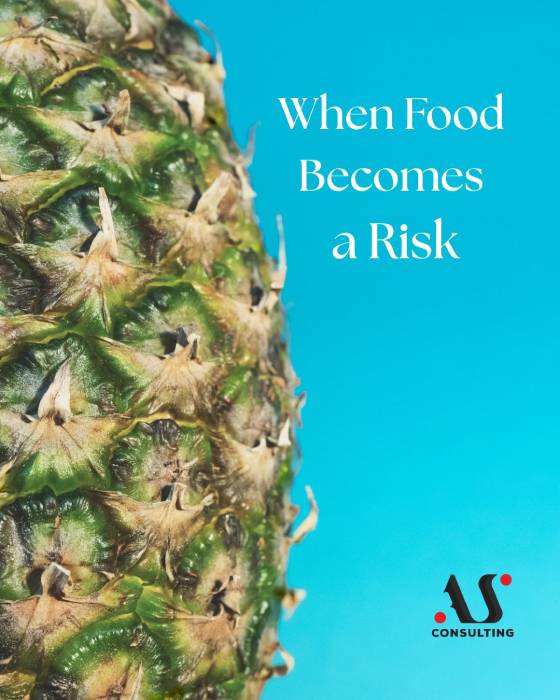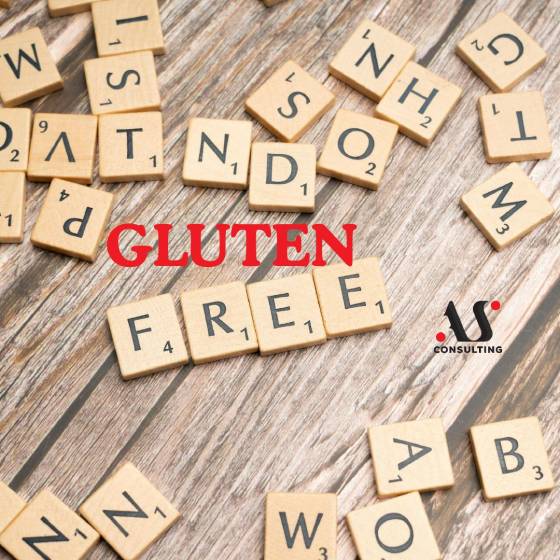
IFS FOOD STANDARD – WHAT VERSION 8 BRINGS: A look at the draft version
July 6, 2022
CUSTOMERS REQUIREMENTS RELATING TO STANDARDS AND ASSESSMENTS FOR SUPPLIERS OF PL (Private Label) BRANDS
August 1, 2022The question is often asked what is the purpose of standardization and what are its benefits for the company and society in general. One of the benefits, perhaps the most important, is that by expanding the culture of implementation of the management system (quality, occupational safety, food safety, etc.), both the quality and/or safety of the product, as well as the raising of consumer awareness about the quality and safety of the product and/or or service were increased. Since the quality and safety of products are taken for granted today, we are taking a step further towards positive changes regarding the social responsibility of companies.
Social responsibility can be explained as the need for companies, in addition to increasing their business (income), to work in a way that will benefit society: socially responsible companies should respect the well-being of their employees and the social community, through compliance with legislation related to the protection employees and the environment, while at the same time reducing negative impacts on them.
Although the social responsibility of companies has been talked about more and more in the last 40 years, it is not a new topic: the idea that companies have social responsibility appears as early as the beginning of the 19th century. Today, this topic is developed through corporate social responsibility (CSR) and companies are approached through standards and guides used to meet the standards of a “responsible” company.
We will present some of the most applicable ones.
ISO 26000: GUIDELINES FOR SOCIAL RESPONSIBILITY
The International Organization for Standardization has developed the ISO 26000 standard – guidelines related to social responsibility, which helps organizations that want to act in a socially responsible way. This is not a management system standard and is not intended for certification: the standard provides guidelines and not requirements for companies that want to be socially responsible.
Basic topics and responsibilities defined by the standard that the organization should deal with:
1. organizational management: “Efficient management should be based on incorporating the principles of social responsibility in decision-making and implementation.These principles are responsibility, transparency, ethical behavior, respect for the interests of interested parties, respect for the rule of law, respect for international norms of behavior and respect for human rights” (ISO26000:2010 standard);
2. human rights: the basic responsibility of the organization is to respect human rights, and the responsibility is to identify and prevent the potential violation of those rights arising from its own activities;
3. work practices: employment and promotion of workers, disciplinary and disciplinary procedures, termination of employment, employee training, safety and health;
4. environment: the organization’s activities always have an impact on the environment, and by adopting environmental protection policies and principles, the organization prevents direct and indirect economic, social, and health implications of its decisions and activities on the environment.
5. honest business practices: ethical behavior in the organization’s business with other organizations.
6. Consumer issues: “Consumer issues related to social responsibility relate to, among other things, fair marketing practices, health and safety protection, sustainable consumption, dispute resolution and redress, data and privacy protection, access to essential products and services, addressing needs vulnerable and vulnerable consumers and education” (ISO26000:2010);
7. community involvement and development: the organization should consider itself part of the social community and as such recognize and respect the rights of community members to make decisions in the interest of the community.
BRC ETHICAL TRADE STANDARD
BRC (British Retail Consortium) is an association of British retail chains that developed the BRC group of standards, of which BRC Food is certainly the most famous and applicable, but there are also BRC – Packaging and packaging materials, BRC – Consumer Products and BRC – Storage and Distribution. As an association of retailers, BRC has the advantage of receiving feedback directly from customers and consumers, so a trend of increasing awareness (in the last 10 years) has been observed regarding the issue of social responsibility of companies: where it is understood that the product is safe and of appropriate quality, but in addition it also expects socially responsible behavior from companies.
Accordingly, BRCGS has provided a solution to companies by developing the BRC Ethical Trade and Responsible Sourcing standard, which is recognized by SSCI – The Supplement Safety & Compliance Initiative (an organization that represents the equivalent of GFSI, is made up of retailers and food manufacturers and provides criteria that standards must be met in order to be recognized by the initiative).
BRC Ethical Trade and Responsible Sourcing follows the structure of BRC standards and can be applied independently or integrated with other BRC standards. Standard requirements:
1. Responsibility of senior management (includes setting policies and objectives related to social responsibility, but also defining the resources necessary for efficient fulfillment of requirements, establishing an effective complaint mechanism by employees and conducting reviews by management);
2. Ethical trade and responsible sourcing management system (requirements related to the management of documents and records, internal audits, corrective and preventive actions, management of incidents related to social issues, outsource processes);
3. Standards of labor relations (observance of legal requirements and requirements of standards related to employment, freedom of choice of employment, rights to work, rights to association, child labor, young and vulnerable workers, wages, discrimination);
4. Safety and health at work
5. Respect of human rights
6. Corporate governance (the company ensures that all employees work in accordance with legal requirements, preventing corruption, fraud, etc.).
SMETA – Sedex methodology for conducting social responsibility audits
SEDEX is one of the world’s leading organizations in the field of social responsibility, which represents an association of organizations from all areas of industry and provides tools and services that help companies operate responsibly and sustainably, in order to protect employees in an ethical way. The platform is designed to allow users that one audit is enough to satisfy the demands of many clients. In order to use the platform, companies must register as Sedex members and thus have the possibility to directly publish their audit reports to be available to all Sedex members.
SMETA (Sedex Members Ethical Trade Audit) is the most frequently used evaluation methodology at the world level for the realization of social audits. The SMETA assessment is based on checking compliance with requirements related to labor relations, occupational health and safety, the environment and business ethics. It refers to a framework of human rights standards, the Ethical Trade Initiative (ETI) Core Code, local law, as well as additional elements. SMETA can be used to check your suppliers, but also for suppliers to check your organization for compliance with social responsibility issues.
Over 40,000 SMETA audits are posted on the SEDEX platform every year.
The SMETA methodology includes two types of checks:
-2 pillars: includes labor standards and safety and health at work;
-4 pillars: includes labor standards, safety and health at work, business ethics and environmental protection.
BSCI – methodology of social audits
BSCI (Business Social Compliance Initiative) is now amfori BSCI and provides companies with a methodology and assessment of workplace conditions throughout the global supply chain. It does not organize audits itself, but provides a network of external accredited, experienced and independent audit companies. The BSCI platform is designed to provide users with a single point of contact for all supply chain performance information.
A BSCI audit helps a company to monitor its supply chain in order to guarantee that all suppliers treat workers ethically.
The Amfori Business Social Compliance Program BSCI is a business initiative that helps organizations meet their obligations to improve working conditions in the global supply chain. BSCI compliant organizations come together under one code of conduct, which helps them in their attempts to build an ethical supply chain by providing them with a development-oriented system applicable to all industries. International conventions cited in the BSCI Code of Conduct include the Universal Declaration of Human Rights, Children’s Rights and Business Principles, the UN Guiding Principles on Business and Human Rights and the OECD Guidelines.
The Foreign Trade Association (FTA) established the BSCI standard in 2003. The goal of adopting this standard was to promote consistency and bring together organizations that want to improve their social compliance and improve their company. BSCI monitors requirements related to: freedom of association, right to collective bargaining, prohibition of discrimination, compensation, working hours, safety and health at work, prohibition of child labor.
IF YOU HAVE CLIENT REQUESTS FOR SOCIAL AUDITS OR YOU WANT TO CONDUCT SOCIAL AUDITS ON YOUR SUPPLIERS, YOU CAN CONTACT OUR AGENCY WHICH OFFERS HELP IN THE FORM OF CONSULTATIONS, TRAINING OR PERFORMING SUPPLIERS AUDITS !!!




